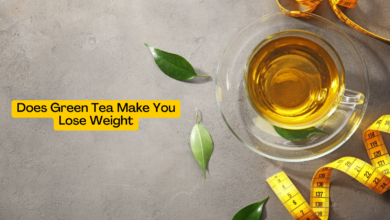Natural High Blood Pressure Remedies

High blood pressure, or hypertension, is a prevalent health condition affecting millions of people worldwide. It is often referred to as the “silent killer” because it typically presents no symptoms until it has caused significant damage to the heart and arteries. While medication is a common treatment, many seek natural remedies to manage their blood pressure. Here, we delve into the most effective natural remedies for high blood pressure.
High Blood Pressure
Blood pressure is the force exerted by the blood against the walls of the arteries. It is measured in millimeters of mercury (mm Hg) and recorded as two numbers: systolic and diastolic. Systolic pressure measures the force during heartbeats, while diastolic pressure measures the force between beats. A reading of 120/80 mm Hg is considered normal, while a reading of 140/90 mm Hg or higher is classified as hypertension.
Dietary Changes for Managing Hypertension
1. Adopt the DASH Diet
The Dietary Approaches to Stop Hypertension (DASH) diet is a well-researched eating plan specifically designed to help manage blood pressure. It emphasizes:
- Fruits and vegetables
- Whole grains
- Lean proteins
- Low-fat dairy products
- Reduced intake of saturated fat and cholesterol
2. Reduce Sodium Intake
Excess sodium can lead to fluid retention, increasing blood pressure. The American Heart Association recommends limiting sodium intake to 1,500 mg per day. Tips to reduce sodium include:
- Reading food labels
- Choosing fresh or frozen vegetables over canned options
- Using herbs and spices instead of salt for flavor
3. Increase Potassium Intake
Potassium helps balance sodium levels in the body. Foods rich in potassium include:
- Bananas
- Oranges
- Spinach
- Sweet potatoes
Lifestyle Modifications
1. Regular Physical Activity
Engaging in regular physical activity can lower blood pressure by strengthening the heart, allowing it to pump blood more efficiently. Aim for at least 150 minutes of moderate aerobic exercise, such as brisk walking, or 75 minutes of vigorous exercise, such as running, each week.
2. Maintain a Healthy Weight
Obesity increases the risk of hypertension. Losing even a small amount of weight can significantly impact blood pressure levels. Focus on:
- Eating a balanced diet
- Exercising regularly
- Avoiding sugary beverages and high-calorie snacks
3. Limit Alcohol Consumption
Excessive alcohol consumption can raise blood pressure. Men should limit their intake to two drinks per day, and women should limit theirs to one drink per day.
4. Quit Smoking
Smoking damages blood vessels and increases the risk of heart disease. Quitting smoking improves overall heart health and can help lower blood pressure.
Natural Supplements and Herbs
1. Omega-3 Fatty Acids
Omega-3 fatty acids, found in fish oil, have been shown to reduce blood pressure and improve heart health. Consider adding more fatty fish like salmon, mackerel, and sardines to your diet or taking a fish oil supplement.
2. Garlic
Garlic contains allicin, a compound known for its blood pressure-lowering properties. Incorporating fresh garlic into your meals or taking a garlic supplement can help manage hypertension.
3. Hibiscus Tea
Hibiscus tea is rich in antioxidants and has been shown to lower blood pressure. Drinking a cup of hibiscus tea daily can be a soothing way to manage hypertension.
4. Coenzyme Q10
Coenzyme Q10 (CoQ10) is an antioxidant that supports heart health. Studies suggest that CoQ10 supplements can help reduce blood pressure in individuals with hypertension.
Stress Management Techniques
1. Practice Mindfulness and Meditation
Mindfulness and meditation are effective techniques for reducing stress and lowering blood pressure. Practicing mindfulness involves paying attention to the present moment without judgment, which can help reduce stress levels.
2. Deep Breathing Exercises
Deep breathing exercises can help relax the body and lower blood pressure. Try spending a few minutes each day practicing deep, slow breaths to promote relaxation.
3. Adequate Sleep
Quality sleep is essential for overall health, including blood pressure management. Aim for 7-9 hours of sleep per night and establish a regular sleep routine.
4. Yoga and Tai Chi
Yoga and tai chi combine physical movement, meditation, and breathing exercises, making them excellent for reducing stress and lowering blood pressure.
Monitoring and Professional Guidance
1. Regular Monitoring
Regular monitoring of blood pressure is crucial for managing hypertension. Home blood pressure monitors are widely available and allow for consistent tracking.
2. Consult with a Healthcare Professional
Consulting with a healthcare professional is essential for personalized guidance and management of high blood pressure. They can provide advice on lifestyle changes, monitor progress, and adjust treatments as necessary.
Conclusion
Managing high blood pressure naturally involves a combination of dietary changes, lifestyle modifications, natural supplements, stress management, and regular monitoring. By adopting these strategies, individuals can take control of their blood pressure and improve their overall heart health. Remember, consistency and dedication are key to achieving and maintaining healthy blood pressure levels.




